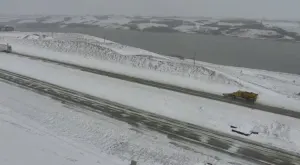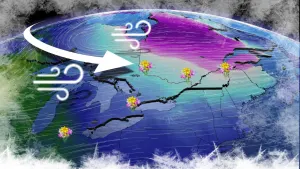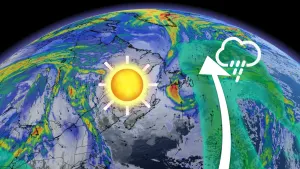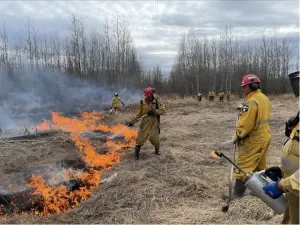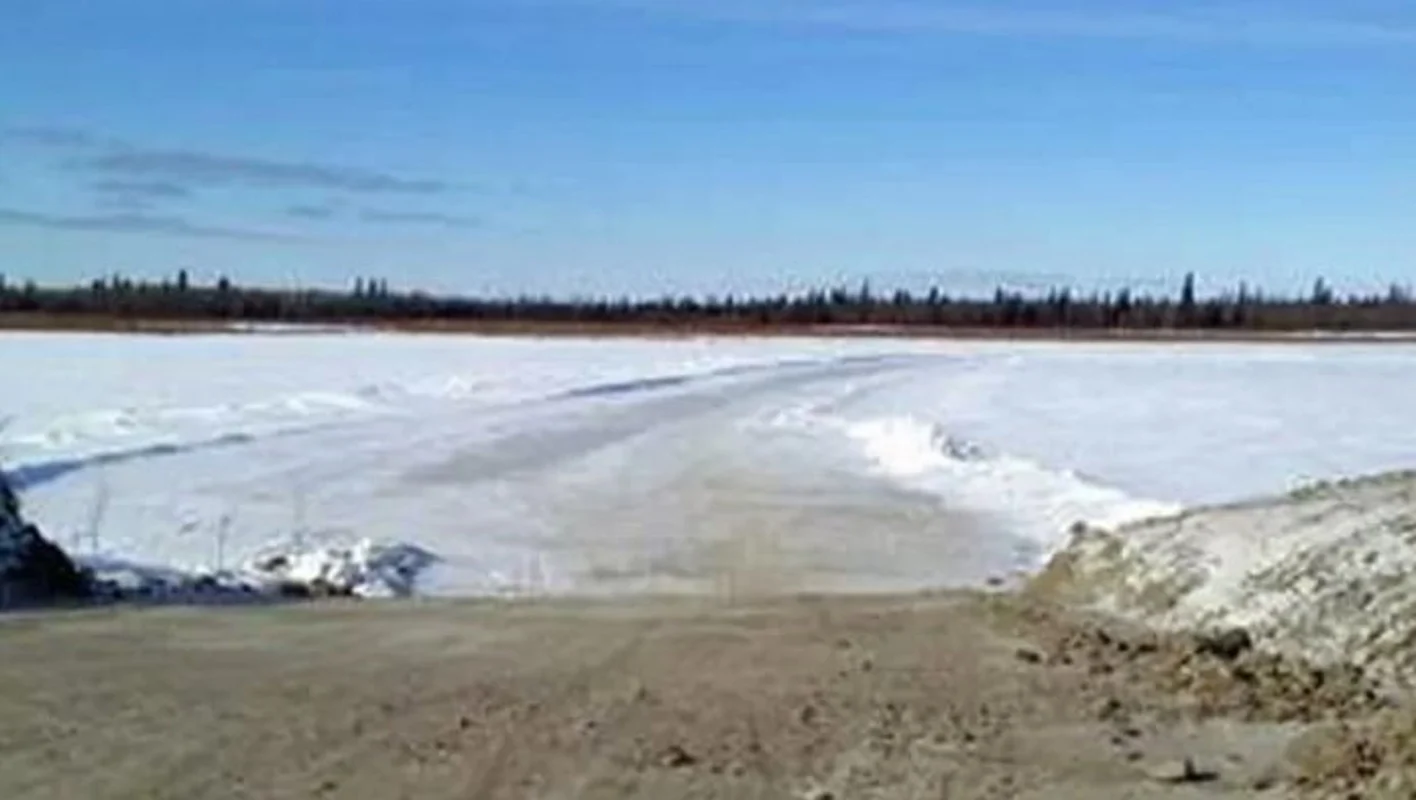
Warm temperatures still hampering winter road access to northern First Nations
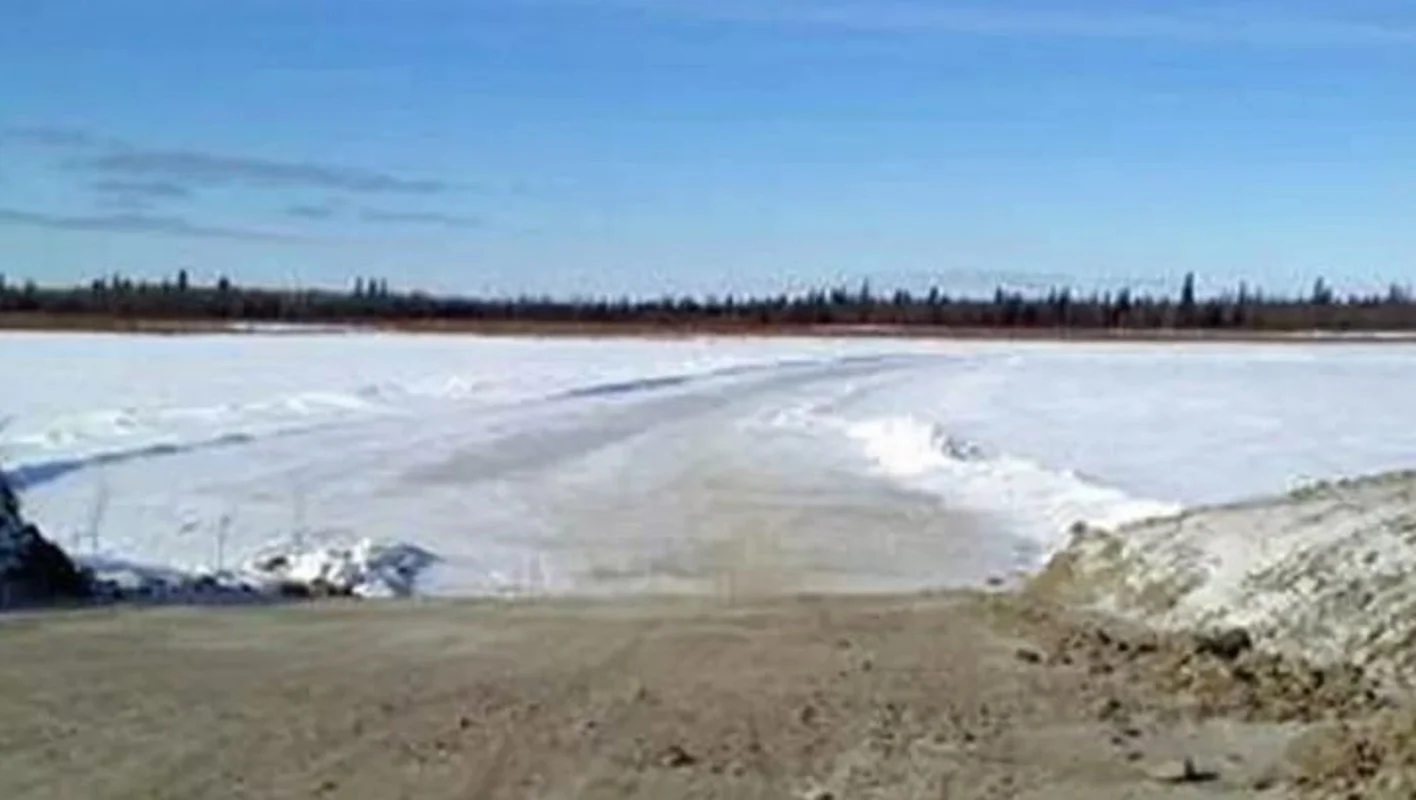
Warm weather is causing problems for the winter roads leading to northern Ontario Indigenous communities. Photo: CBC.
Warm weather continues to play havoc with winter roads to northwestern Ontario First Nations.
Roads to all communities are now open to at least partial loads, according to the Nishnawbe Aski Nation's winter road update published Friday. However roads to three communities – Deer Lake, Bearskin Lake and Eabametoong – remain open to only partial loads, and some roads that are listed as open to full loads may need to restrict them at times.
SEE ALSO: First Indigenous astronaut wants us to unplug, connect with nature
Fort Severn's road just opened at the end of February, approximately two weeks later than usual, and Chief Paul Burke has already sent a crew out to address problems, he said.
"We went back out to check ice thicknesses," Burke said, "and one lake, even though it was cleared, is not thick enough, so we're going to have to make that bypass around one lake."
The community is waiting on food, fuel, and materials for a new water treatment plant, Burke said.
The winter roads get worse every year, he added, and this year has been the worst yet.
'WE HAD VEHICLES BUSTING THROUGH THE ICE OR THE MUSKEG'
"We had vehicles busting through the ice or the muskeg... every day," he said of the construction process. "I think they said the least number of times the machines broke through was five and the most was in the high teens... in one day. This is one day."
Last year, Burke was forced to ship fuel into the community by air at a cost of around $48,000 after the winter road failed to hold out long enough to bring in sufficient quantities," he said.
VIDEO: INDIGENOUS COMMUNITIES IN CANADA FINALLY ON GOOGLE MAPS
The added expense forced him to forgo purchasing a piece of equipment for maintaining the roads.
Ironically, he said, this year he also missed out on receiving a summer shipment of fuel that was due to arrive in August by barge because the ice on Hudson Bay failed to fully retreat.
"It's really stressful," he said. "It's really hard."
'A LOT OF SLUSH ON THE ICE'
The councillor in charge of public works for Deer Lake First Nation said his community is managing to bring in the supplies it needs despite the fact that its road is only open to partial loads.
"It's a lot of slush on the ice, and there isn't that much ice build-up this year," Gary Meekis said. "We struggle to keep it maintained when your machines keep breaking down due to moving heavy snow with the slush on the edge of the snow banks."
The community relies on the road to bring in bottled water, food, groceries and lumber for home-building he said.
So far, those are all coming into the community, but the loads are divided across two or three tractor-trailers. It's too early to say what the cost will be to the community of the additional loads, Meekis said.
Kitchenuhmaykoosib Inninuwug's road is currently open to full loads after being closed for nearly a week last week due to ice damage and cracks, said Peter Nanokeesic, the operations and maintenance and public works manager for the community.
KI has been waiting on building supplies for a new school, and so far, about half of the necessary materials have arrived, Chief Donny Morris said.
Thumbnail courtesy of CBC.
The story was written by Heather Kitching/CBC News and originally appeared on CBC.ca.






